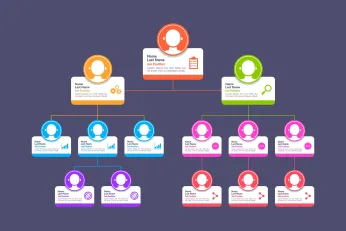أفضل 10 أدوات لزيادة كفاءة فريقك في عام 2025 لتعزيز كفاءة فريقك في عام 2025
تتطلب إدارة خط أنابيب المبيعات بفعالية أدوات إدارة خط أنابيب المبيعات المناسبة لتتبع العملاء المحتملين ومراقبة الصفقات وتحسين التحويلات. تعمل أفضل الأدوات على أتمتة المهام، وتوفر تحليلات في الوقت الفعلي، وتعزز التعاون. تعرّف على أفضل 10 أدوات لإدارة مسارات المبيعات لتعزيز الكفاءة.
في هذه الصفحة
An organized sales pipeline is key to maintaining a steady flow of deals and improving conversion rates. Without effective sales pipeline management tools, teams often struggle with lost opportunities, delayed follow-ups, and inefficient deal tracking. Managing a pipeline manually can lead to missed revenue potential and poor sales forecasting, making it harder for businesses to scale.
The right pipeline management tools provide visibility into every stage of the sales process, helping teams track leads, monitor deal progress, and automate essential tasks. These tools ensure sales reps stay focused on high-value opportunities while reducing administrative workload. With built-in analytics and automation, businesses can improve efficiency, enhance collaboration, and make data-driven decisions to accelerate revenue growth.
This guide covers the 10 best sales pipeline management tools designed to optimize workflows, strengthen sales strategies, and improve team performance.
Must have features of a sales pipeline tool
A sales pipeline management tool plays a crucial role in helping sales teams track leads, manage deals, and optimize the sales process. The best pipeline management tools come with automation, analytics, and integrations that improve efficiency, enhance collaboration, and provide real-time insights. Below are the key features to look for when choosing a sales pipeline tool:
- Lead and deal tracking: A pipeline tool should provide a centralized dashboard to track leads and deals at every stage. It should allow users to categorize leads, update deal statuses, and monitor progress to ensure no opportunity is overlooked.
- Automated task management: Automating routine tasks such as follow-ups, data entry, and reminders helps sales reps focus on closing deals instead of administrative work. Tools with AI-powered automation improve response times and engagement.
- Customizable sales stages: Every business has a unique sales process, so a pipeline tool should allow customization of pipeline stages to reflect real-world deal progress. It should support drag-and-drop functionality to move deals between stages easily.
- Real-time reporting and analytics: Sales managers need instant access to pipeline data, conversion rates, and deal progress. A good pipeline tool provides real-time analytics, performance dashboards, and trend reports to help teams make informed decisions.
- CRM integration: A pipeline tool should integrate seamlessly with existing CRM software to ensure smooth data synchronization. This eliminates duplicate data entry, improves customer interactions, and keeps sales teams aligned with other departments.
- Collaboration and communication tools: Sales teams need a way to share deal information, notes, and updates in real time. A robust pipeline tool includes built-in messaging, document sharing, and team collaboration features to streamline communication.
- Forecasting and predictive analytics: A strong pipeline tool should analyze historical data to provide accurate revenue forecasting. Predictive analytics can identify potential roadblocks, highlight high-value opportunities, and suggest actions to improve deal closures.
- Mobile access and cloud-based functionality: Sales reps need access to pipeline data on the go. A mobile-friendly, cloud-based tool allows teams to update deals, respond to prospects, and track progress anytime, ensuring greater flexibility and responsiveness.
Choosing a sales pipeline management tool with these features helps businesses improve visibility, enhance efficiency, and close deals faster. Investing in the right platform ensures a structured, data-driven approach to sales success.
10 Sales pipeline tools every sales team should consider
Here are the 10 best sales pipeline tools every sales team should consider to boost performance.
1. Compass
Compass is a comprehensive sales performance and pipeline management tool that centralizes and automates the management of sales activities, revenue growth, and compliance, making it easier for organizations to achieve their targets.
With AI-driven capabilities, Compass provides sales leaders, managers, and reps with real-time analytics and insights that enhance decision-making and align sales activities with business strategies.
The platform is particularly useful for handling territory and quota planning, as well as compliance with industry standards like ASC 606 and IFRS 15. By automating these critical processes, Compass enables teams to focus on driving revenue and optimizing performance, leading to faster and more accurate attainment of sales goals.
ملامح
- AI-driven planning: Automates territory and quota planning, eliminating guesswork and errors while aligning activities with revenue goals.
- Real-time analytics: Provides detailed visibility into sales performance, helping leaders track progress and make data-driven decisions.
- Advanced forecasting: Uses AI to generate accurate sales forecasts, enabling teams to set realistic quotas and adapt strategies as needed.
- Compliance automation: Automates compliance with standards like ASC 606 and IFRS 15, ensuring accurate revenue recognition and reporting.
- Data centralization: Integrates data from multiple sources, centralizing information for seamless performance tracking and decision-making.
الايجابيات
- Enhanced visibility: Compass offers comprehensive insights into sales performance across all levels of the organization, aiding in better decision-making.
- Customizable planning: Allows sales leaders to adjust quotas and territories dynamically, ensuring they align with evolving market conditions.
- Compliance management: Automates compliance processes, reducing the burden of manual data entry and ensuring adherence to global standards.
Pricing structure: Compass does not publicly disclose pricing details. Interested users can contact the sales team for a customized quote.
تصنيفات
- G2 Rating: 4.9/5
- Capterra Rating: 4.5/5
2. Zixflow
Zixflow is a powerful sales pipeline management tool designed to streamline and enhance the sales process. With its customizable interface and comprehensive features, Zixflow helps sales teams efficiently manage leads, track progress, and close deals faster.
ملامح
- User-friendly interface: Zixflow offers a simple drag-and-drop interface, making it easy for users to manage leads and sales tasks without extensive training.
- All-in-one management: Keep all your sales activities centralized with Zixflow. You can schedule calls, follow up on leads, and manage emails from one platform.
- Comprehensive analytics: Zixflow provides robust analytics, allowing users to track sales performance, identify winning strategies, and refine their approach.
- Kanban view: Easily visualize and manage your sales pipeline generation by dividing it into stages, ensuring you never lose track of a lead.
الايجابيات
- Ease of use: Users appreciate Zixflow’s intuitive design, which allows them to quickly get up and running.
- Effective automation: The tool’s automation features significantly reduce manual tasks, saving time and increasing efficiency.
- Customization options: Zixflow provides customizable templates and workflows, making it adaptable to various business needs.
هيكل التسعير
Zixflow offers several pricing plans tailored to different business requirements:
- Marketing plan: Ranges from a free basic plan to $159/month for the Enterprise option.
- XCRM plan: Prices start at $59/month and go up to $249/month.
- ONE plan: Combines Marketing and XCRM features, starting at $79/month, with the most comprehensive plan priced at $299/month. Each plan includes a 7-day free trial.
G2 Rating: 4.8/5
Capterra Rating: 4.6/5
3. EngageBay
EngageBay is a comprehensive all-in-one CRM platform designed for marketing, sales, and customer service. It is an ideal solution for small businesses and startups aiming to streamline their operations, improve customer engagement, and drive growth.
ملامح
- Sales pipeline management: EngageBay provides a visual sales pipeline that allows teams to track deals and progress through different stages seamlessly.
- Email marketing: With robust email marketing features, EngageBay stands out as an alternative to platforms like Constant Contact and ActiveCampaign, supporting email campaigns, autoresponders, and landing page creation.
- Customer engagement tools: EngageBay offers features like user interaction tracking and location tracking, helping businesses identify and nurture leads more effectively.
- Integrated marketing automation: EngageBay’s automation capabilities ensure that businesses can engage with customers at every step, making it a powerful tool for long-term growth.
الايجابيات
- Affordability: EngageBay is known for its cost-effectiveness, offering a comprehensive set of tools at a lower price compared to other CRM platforms.
- Ease of use: Users appreciate its user-friendly interface, which requires minimal training.
- Extensive features: Despite its affordability, EngageBay provides a wide range of features suitable for both marketing and sales, making it a versatile choice.
هيكل التسعير
EngageBay offers several pricing plans:
- Free plan: $0 per month, limited features with up to 500 contacts.
- Basic plan: $11.95 per user/month, offering essential features.
- Growth plan: $49.99 per user/month, for businesses needing advanced features.
- Pro plan: $79.99 per user/month, including premium features for larger businesses.
تصنيفات
- G2 rating: 4.6/5
- Capterra rating: 4.0/5
4. هوب سبوت
HubSpot is a top-tier CRM platform designed to streamline sales pipeline management, providing powerful tools to help businesses track revenue-generating activities and optimize their sales process. Known for its intuitive interface and robust features, HubSpot is a preferred choice for businesses aiming to enhance their sales strategy.
ملامح
- Contact record automation: Automatically updates and manages contact records, reducing the need for manual data entry.
- Daily outreach lists: Generates daily outreach lists to ensure consistent follow-up with leads.
- Project management: Integrates project management features, enabling teams to track tasks and collaborate effectively.
- Revenue attribution: Provides detailed insights into which activities and channels yield the most revenue, allowing sales teams to focus on high-impact tasks.
الايجابيات
- Customizable sales pipeline: HubSpot’s sales pipeline is fully customizable, enabling teams to tailor each step to their unique processes.
- Comprehensive sales insights: The sales dashboard offers quota updates, team and individual performance insights, and activity patterns to help optimize sales efforts.
- Eliminates manual data entry: New deals are automatically created from existing contact records, streamlining the sales process.
سلبيات
- Complex contact merging: Merging contacts can be time-consuming and challenging.
- Limited customization for quotes: The platform does not allow for much flexibility in customizing quotes.
- High cost for advanced plans: HubSpot’s Professional and Enterprise plans are pricey, with mandatory annual payments that may not suit all businesses.
هيكل التسعير
- Free plan: Offers basic CRM features without cost.
- Professional plan: Starts at $450/month (billed at $5,400/year).
- Enterprise plan: Costs $1,500/month (billed at $18,000/year).
تصنيفات
- G2 Rating: 4.4/5
- Capterra Rating: 4.5/5
5. Freshsales
Freshsales is a robust CRM tool that is part of the Freshworks suite, designed to streamline sales pipeline management using AI-driven insights. It provides comprehensive features to manage sales processes, predict deal outcomes, and automate repetitive tasks, making it an excellent choice for growing businesses.
ملامح
- AI-based insights: Leverage AI to predict the likelihood of deal conversion and estimate potential revenue, helping teams prioritize high-impact deals.
- Sales pipeline management 2.0: Offers a detailed view of your entire sales pipeline, allowing you to assign tasks and track progress easily.
- Automated workflows: Set conditions to trigger automated responses or follow-ups, reducing manual effort and ensuring timely communication.
- Forecasting and analytics: Gain valuable insights into future sales performance and pipeline health, enabling more informed decision-making.
الايجابيات
- Comprehensive sales management: Freshsales provides an end-to-end solution for managing the sales pipeline, from lead generation to deal closure.
- AI-driven automation: The platform’s AI capabilities help automate routine tasks and provide actionable insights, improving efficiency.
- Affordable entry point: Freshsales offers a free plan with basic CRM functionalities, making it accessible for startups and small businesses.
هيكل التسعير
- Free plan: Provides basic CRM features without any cost.
- Growth plan: $9/user/month, billed annually, which includes advanced automation features.
تصنيفات
- G2 Rating: 4.6/5
- Capterra Rating: 4.6/5
6. Pipedrive
Pipedrive is a widely-used sales pipeline management tool known for its intuitive interface and robust features designed to optimize sales processes. It offers businesses a clear, visual representation of their sales pipeline, making it easier to track leads, forecast revenue, and streamline sales data according to specific needs.
ملامح
- Visual pipeline management: Provides a clear view of where each lead stands within the sales cycle, helping teams prioritize and focus on high-impact deals.
- Live revenue forecasting: Offers real-time insights into expected revenue, enabling better financial planning and decision-making.
- Customizable sales stages: Allows businesses to tailor the stages of their sales cycle to match their unique processes.
- Lead segmentation: Identifies inactive leads, helping sales teams to concentrate on strategies that convert leads into paying customers.
الايجابيات
- User-friendly interface: Pipedrive’s dashboard is easy to navigate, making it simple for teams to manage their sales pipeline.
- Responsive support: The platform is backed by a highly responsive support team, ensuring quick resolution of any issues.
سلبيات
- Limited customization: Pipedrive offers fewer customization options compared to other CRM tools.
- Technical glitches: Users have reported occasional interruptions and glitches, which can disrupt workflow.
هيكل التسعير
Pipedrive offers five pricing tiers to accommodate different business needs:
- Essential: $9.90 per user/month
- Advanced: $19.90 per user/month
- Professional: $39.90 per user/month
- Power: $49.90 per user/month
- Enterprise: $59.90 per user/month
تصنيفات
- G2 Rating: 4.2/5
- Capterra Rating: 4.5/5
7. Keap
Keap, previously known as Infusionsoft, is a CRM platform designed to manage customer relationships and automate sales processes. With its robust sales pipeline management tools, Keap allows businesses to track customers at every stage of the sales funnel, ensuring smooth lead management and conversion.
ملامح
- Unified sales dashboard: Keap’s dashboard provides a detailed summary of prospective leads, showing their progress through the sales pipeline and highlighting successful conversions.
- Pipeline analytics: Gain insights into your sales team’s activities, including real-time metrics like revenue forecasting, average deal duration, and deal conversions at all stages.
- Business line feature: Keap’s Business Line offers a virtual phone number, enabling communication via WhatsApp, SMS, or calls, whether for personal or business matters.
- Task allocation: Easily assign tasks and manage both remote and on-site sales teams, ensuring seamless operations.
الايجابيات
- Customizable CRM: Keap allows extensive customization to meet specific business needs.
- Comprehensive insights: The platform provides real-time data on various sales parameters, aiding in better decision-making.
سلبيات
- Slow loading times: The landing page developer can be slow to load, affecting user experience.
- Limited marketing templates: The available templates for marketing are somewhat limited, which may constrain creative options.
هيكل التسعير
Keap’s pricing starts at $159/month (billed annually at $1,908/year). For businesses needing advanced marketing, automation, and analytics features, a higher-tier plan is required.
تصنيفات
- G2 Rating: 4.1/5
- Capterra Rating: 4.2/5
8. Zapier
Zapier is a cloud-based automation platform that enables businesses to automate routine tasks across various applications. With its vast integration capabilities, Zapier helps users streamline sales processes by connecting different tools and triggering actions based on specific events.
ملامح
- Automated workflows: Create "Zaps" that automate tasks like adding new leads to your CRM when a form is filled or sending welcome emails without manual intervention.
- Extensive integrations: Zapier supports over 5,000 applications, including Gmail, QuickBooks, Mailchimp, Zoom, Trello, and more. It also allows users to create custom integrations for unsupported apps.
- Pre-built Zaps: Access a library of customizable, pre-built Zaps that require no coding or configuration, making it easy to automate both simple and complex workflows.
- Data transfer: Zapier’s free version allows users to automate up to 100 tasks per month and create up to five one-step Zaps, with additional features like bulk data transfer available in higher-tier plans.
الايجابيات
- Ease of use: No coding skills are needed to set up automation workflows, making it accessible for users of all technical levels.
- Wide range of integrations: With support for over 5,000 apps, Zapier is highly versatile and can connect nearly any combination of tools.
- Custom integrations: For apps not supported natively, users can create custom integrations, providing additional flexibility.
سلبيات
- Limited free plan: The free plan only supports up to 100 tasks per month and five single-step Zaps, which might not be sufficient for larger operations.
- Costly higher plans: Advanced plans can be relatively expensive, especially for businesses requiring extensive automation and integrations.
هيكل التسعير
Zapier offers a freemium model:
- Free plan: Automate up to 100 tasks per month with up to five single-step Zaps.
- Starter plan: $19.99/month (billed annually) with additional features and more tasks.
- Team plan: Starts at $69/month (billed annually) for collaborative automation with team management features.
تصنيفات
- G2 التقييم: 4.7/5
- Capterra Rating: 4.7/5
9. Streak
Streak is a unique CRM tool designed specifically for Gmail users, allowing seamless sales pipeline management directly within your inbox. This integration makes it exceptionally convenient for managing leads, tracking deals, and monitoring client relationships without switching between applications.
ملامح
- Gmail integration: Streak is embedded directly within Gmail, enabling you to manage your sales pipeline without leaving your inbox.
- Pipeline stages: The software provides customizable pipeline stages, helping you track and manage leads throughout the sales process.
- Contact management: Users can add notes and files to contact records, ensuring that all relevant information is easily accessible.
- Task management and email templates: Built-in task management and email templates streamline communication and enhance team productivity.
الايجابيات
- Convenient integration: Streak’s tight integration with Gmail makes it easy to manage sales activities without needing to switch between different tools.
- Data visualization: The platform’s visualization features help identify trends and focus on high-priority leads.
- Customizable pipelines: Users can create and customize sales pipeline stages to fit their unique workflows.
سلبيات
- Limited free plan: The free version supports tracking up to 500 leads and sending 50 emails per day, which may be restrictive for larger teams.
- Higher pricing: Advanced features require a paid plan, which can be expensive compared to other CRM tools.
هيكل التسعير
Streak offers the following pricing options:
- Free plan: Includes basic CRM features, tracking up to 500 leads, and sending up to 50 emails per day.
- Solo plan: $49 per user/month.
- Pro plan: $129 per user/month, offering more advanced features and support.
تصنيفات
- G2 Rating: 4.5/5
- Capterra Rating: 4.5/5
10. Nutshell
Nutshell is a versatile sales pipeline management tool that enhances sales processes by offering a range of features designed to help businesses manage leads, track opportunities, and close deals effectively.
With its user-friendly interface, Nutshell provides businesses with a visual sales pipeline that offers a clear overview of the status of each deal, making it easier to manage and prioritize tasks.
ملامح
- Visual sales pipeline: Offers a clear, visual representation of deals within the sales funnel, enabling better tracking and management of sales opportunities.
- Contact management: Allows you to store and organize vital contact information such as names, phone numbers, and email addresses, ensuring that all your prospect data is readily accessible.
- Lead management: Facilitates effective lead management by tracking opportunities through each stage of the sales funnel.
Pricing structure: Nutshell offers a 14-day free trial, after which you can choose from one of four pricing plans. These plans range from $16 to $67 per user per month, catering to different business needs.
تصنيفات
- G2 Rating: 4.3/5
- Capterra Rating: 4.1/5
استنتاج
Choosing the right sales pipeline tool can be a game-changer for your business. The tools we've highlighted offer a range of features designed to enhance visibility, improve efficiency, and drive more sales. Whether you're a small business looking for simplicity or an enterprise needing advanced capabilities, there's a solution out there that fits your needs.
By investing in the right tool, you can streamline your sales process, keep your team aligned, and ultimately close more deals. Take the time to evaluate your options, and you'll find that the right sales pipeline tool can significantly impact your bottom line.
الأسئلة الشائعة
1. What is a sales pipeline tool?
A sales pipeline tool is a software application designed to help sales teams track and manage leads and opportunities throughout the sales process, from initial contact to closing the deal.
2. Why are sales pipeline tools important for businesses?
Sales pipeline tools provide visibility into each stage of the sales process, helping teams stay organized, identify bottlenecks, forecast revenue, and make data-driven decisions.
3. How do sales pipeline tools improve efficiency?
These tools automate many manual tasks, offer real-time insights, and help prioritize activities, allowing sales teams to focus on the most critical actions that drive results.
4. What features should I look for in a sales pipeline tool?
Key features to consider include lead management, sales forecasting, CRM integration, reporting and analytics, task automation, and customization options.
5. Are sales pipeline tools suitable for small businesses?
Yes, many sales pipeline tools are designed to scale with businesses of all sizes, offering features that can benefit both small teams and large enterprises.
6. Can sales pipeline tools integrate with other software?
Most sales pipeline tools offer integrations with popular CRM, marketing, and communication platforms, allowing for a seamless flow of data across your tech stack.
7. How do I choose the best sales pipeline tool for my team?
Consider your team’s size, sales process complexity, required features, and budget. It’s also helpful to take advantage of free trials to test the tool before committing.
8. What are some of the most popular sales pipeline tools?
Some widely-used sales pipeline tools include HubSpot Sales, Pipedrive, Salesforce, Zoho CRM, and Monday.com Sales CRM.
9. How can sales pipeline tools help with sales forecasting?
These tools provide data-driven insights and visualizations that help you predict future sales based on current pipeline activities and historical data.
10. Do sales pipeline tools offer mobile access?
Many sales pipeline tools offer mobile apps or responsive web interfaces, allowing sales teams to access and update their pipeline on the go.













